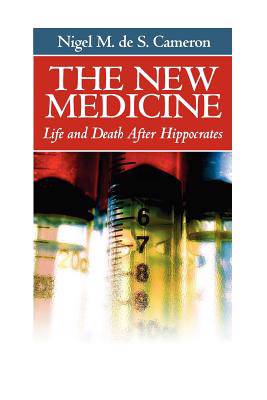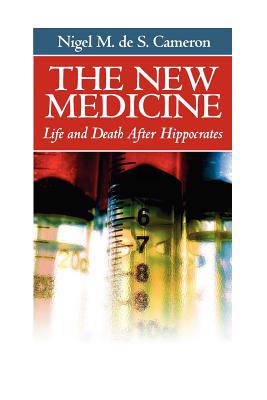
Door een staking bij bpost kan je online bestelling op dit moment iets langer onderweg zijn dan voorzien. Dringend iets nodig? Onze winkels ontvangen jou met open armen!
- Afhalen na 1 uur in een winkel met voorraad
- Gratis thuislevering in België vanaf € 30
- Ruim aanbod met 7 miljoen producten
Door een staking bij bpost kan je online bestelling op dit moment iets langer onderweg zijn dan voorzien. Dringend iets nodig? Onze winkels ontvangen jou met open armen!
- Afhalen na 1 uur in een winkel met voorraad
- Gratis thuislevering in België vanaf € 30
- Ruim aanbod met 7 miljoen producten
Zoeken
Omschrijving
The New Medicine addresses the current crisis in medicine that stems from the steady collapse of the Hippocratic tradition of professional medical practice. Side by side growing support for abortion and euthanasia, both forbidden in the Hippocratic Oath, we see a shift toward the "relief of suffering" as the goal of medicine - a weasel concept that has been broadened to include the "suffering" of relatives, physicians, and society at large. The evils of medicine and science under the Nazis illustrated how rapidly the humane medical tradition could be subverted and medical skills put to terrible purposes. As we seek in the 21st century to rebuild the professional character of medicine, and to develop a policy framework for bioscience and related technologies, there has never been wiser counsel than that of Hippocrates. And that this pagan physician should have been endorsed by Christians, Jews, and Muslims, and perhaps most notably in the 20th century by Margaret Mead, doyenne of anthropologists and one of the century's most influential liberal figures, suggests that his vision for medicine is as relevant to tomorrow as it was in the distant days of late antique Greece.
Specificaties
Betrokkenen
- Auteur(s):
- Uitgeverij:
Inhoud
- Aantal bladzijden:
- 188
- Taal:
- Engels
Eigenschappen
- Productcode (EAN):
- 9780971159907
- Verschijningsdatum:
- 1/01/1992
- Uitvoering:
- Paperback
- Formaat:
- Trade paperback (VS)
- Afmetingen:
- 156 mm x 234 mm
- Gewicht:
- 272 g

Alleen bij Standaard Boekhandel
+ 67 punten op je klantenkaart van Standaard Boekhandel
Beoordelingen
We publiceren alleen reviews die voldoen aan de voorwaarden voor reviews. Bekijk onze voorwaarden voor reviews.











